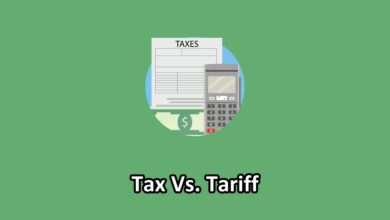Costing and cost accounting are two very common terminologies in the financial world. Many people use these terms interchangeably with one another. However, there is an obvious difference between them. In this article, we will understand the complete difference between costing and cost accounting by having a look at the following set of concepts.
Our Readers Can Also Read:
Definition Of Costing
Costing refers to the process of estimating and ascertaining the cost of a given item. This process involves recognizing the unit cost of production of a product or a service and then determining the sale price that is to be charged from the customer. Costing is dynamic in nature. This means that this involves a variable cost(cost changes with respect to different factors such as market activity, input rates, etc). This method is known as direct costing. For example, the price of electronic devices changes in response to new and upcoming technology.
Definition Of Cost Accounting
In economics and finance, cost accounting refers to the process of collecting, recording, classification, ascertaining, and analyzing information and data related to the cost of production and operation. It is an accounting used to calculate the cost of the products and helps in providing the data and information to the management for proper planning, operations, controlling and reducing costs, and making good decisions.
Arranging, presenting, recording, and recognizing suitable investment allocation for investment to determine the costs of goods and services is the primary function of Cost Accounting. Cost accounting focuses on considering all input costs related to the production including both fixed and variable costs. Cost accounting is a bit similar to financial accounting, but it is not communicated or reported at the end of the financial year.
There are two types of Cost Accounting and they are following.
- Integrated Accounting System- The accounting system in which only one set of account books is maintained to record both the cost and financial transactions.
- Non-Integrated Accounting System- The accounting system in which two separate sets of account books are maintained-one to record cost data and the other to record financial data.
Difference Between Costing And Cost Accounting
| Basis For Difference | Costing | Cost Accounting |
| Definition | It refers to the method of determining and recognizing the cost of a product or service at a given time and at different stages of production. | It refers to the process that assists the management in proper planning, operation, cost control, and making good decisions. |
| What is it? | Process or technique of identifying costs. | The branch of accounting. |
| Scope | Costing is a narrow concept. | It is comparatively broader. |
| Importance In Decision-Making Process | It is not used for decision-making. | It is used for the decision-making process. |
Key Differences Between Costing And Cost Accounting
Some of the key differences between costing and cost accounting are as follows.
- Costing refers to the process of estimating and ascertaining the cost of a given item. In economics and finance, cost accounting refers to the process of collecting, recording, classification, ascertaining, and analyzing information and data related to the cost of production and operation.
- Accounting principle does not play a crucial role in costing because costing does not apply the core principles of the accounting mechanism. On the other hand, Cost accounting is one of the parts of accounting and so, all the basic principles of accounting are applicable to it.
- Costing is a narrow concept while cost accounting is a broader term.
Conclusion
So, we can summarize that both costing and cost accounting are the fundamental activities that assist a business in tracking and controlling the cost of production of goods and services. While costing deals with the technique of assessing the cost of goods and services displayed at the different stages of production, Cost Accounting deals with the collecting, recording, classification, ascertaining, and analysis of information so as to help the management in decision-making activities.




3 Comments